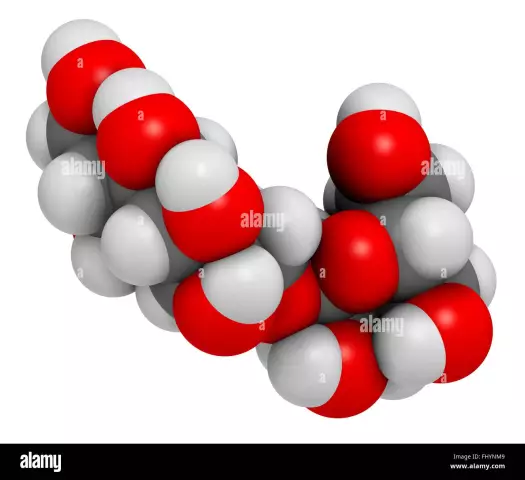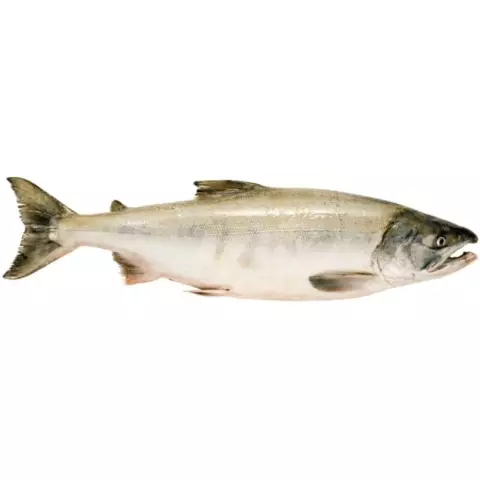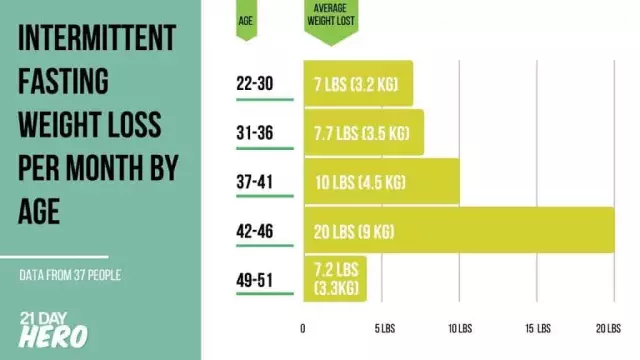- Author Rachel Wainwright wainwright@abchealthonline.com.
- Public 2023-12-15 07:39.
- Last modified 2025-11-02 20:14.
Sugar substitute

By studying the mechanisms of obesity, scientists have come to the conclusion that adipose tissue is mainly supported by carbohydrates. This is how the myth about the dangers of sweets appeared. The reasoning of scientists is difficult for a common layman to understand, since they use many special scientific terms. In fact, in the twentieth century, the obesity mechanism was discovered, which affected the metabolism of carbohydrates, but only indirectly. Any food that has entered the human body is converted into glucose as a result of complex biochemical processes. This was what was discussed. Therefore, the first sugar substitute, recommended for people without diabetes, appeared. By the end of the twentieth century, physical inactivity became widespread, and obesity became a real problem. The growing belief that glucose contributes to body fat has prompted people to look for a way out. The proposed sugar substitute seeminglysolved many problems. But, judging by the statistics, the number of overweight people has not declined. Replacing glucose with a substance similar in taste is indeed necessary, but not for everyone.
Who needs a sugar substitute
Sugar contains pure glucose. Absorbed into the blood, it is immediately included in the metabolism. Moreover, brain cells feed exclusively on glucose in its pure form, and not on processed products. Glucose affects the pleasure center, which immediately begins to produce endorphins - "hormones of happiness."
Important! In the absence of contraindications, the child should be given sugary foods that contain natural sugar. If a person does not receive glucose during childhood, his pleasure center will respond to other stimulants, such as alcoholic beverages.
Health conditions for which glucose is contraindicated:
- Diabetes mellitus of both the first and the second type;
- Metabolic syndrome;
- Exudative diathesis (scrofula);
- Acute pancreatitis.
For patients with diabetes mellitus, pure glucose is a cellular poison that accumulates in the blood, which makes it thicken. An increase in blood viscosity leads to vascular disorders.
In metabolic syndrome, a natural sugar substitute is a powerful prophylactic agent in the development of type 2 diabetes mellitus, when the receptors for glucose entry gates of cells are turned off.
Exudative diathesis in babies develops as an allergic reaction. In this case, any product can be the causative agent. The recommendation to eliminate sugar from the diet is based on how the rash develops. Any allergic reaction is a perverse response of immune cells to substances that the body perceives as foreign. In these cases, the sugar substitute, once released into the bloodstream, does not intensify the allergic reaction, as glucose does.
In acute pancreatitis, it is necessary to unload the pancreas in order to prevent the death of insulin-producing cells. Patients with pancreatitis in the acute stage are prohibited from eating food, including sweetened drinks.
For the rest of the people, sugar substitute is not an essential product and is used, as they say, "to taste."
Properties of sweeteners
Preparations for sweetening food or beverages do not contain glucose. However, the food seems sweet. Irritation of the papillae of the tongue, the reaction of which to a sugar substitute, the responses of the nervous system causes exactly the same as to carbohydrates. At the same time, the preparations do not contain any calories or their nutritional value is close to zero.
So a person "deceives" the taste buds. Many drugs in this group are perceived several times sweeter than ordinary sugar.
Sugar substitute - harm and benefit
Stopping sugar intake does not lead to the desired effect - weight loss. This is for the following reason: irritation of the nerve endings of the tongue triggers a complex reflex arc of the digestive tract. The insulin produced immediately begins to work, but its work turns out to be ineffective. The hormone allows glucose to enter the cells, opening the gateway. Substances similar in chemical formula to glucose are not included in energy metabolism. A biochemical reaction is not considered complete without producing an end product. A signal is sent to the central nervous system that the synthesized insulin was unclaimed. As a result, the production of the most important hormone decreases. As a result, obesity progresses. Moreover, the brain does not receive basic nutrition, which is only pure glucose, and not its surrogates. For people of mental labor, a sugar substitute is not recommended for taking, the harm and benefits of which are not equal to each other. Even if a person, for some other reason, loses weight, then his brain will remain without nutrition. Carbohydrates that are synthesized in the liver and deposited in the form of glycogen are of no value to the neurons of the cerebral hemispheres. The brain consumes products of neoglucogenesis only in order to survive, but not to improve mental performance. The brain consumes products of neoglucogenesis only in order to survive, but not to improve mental performance. The brain consumes products of neoglucogenesis only in order to survive, but not to improve mental performance.
Many articles on the dangers of sugar substitutes do not have actual confirmation. The carcinogenic effect of synthetic drugs is not confirmed by evidence-based medicine in any country in the world. At the same time, the widely advertised natural sugar substitute does not have significant benefits.
Sweeteners bring undoubted benefits to sick people for whom glucose is absolutely contraindicated, because it aggravates the course of diabetes. Sugar substitute drugs significantly reduce the burden on the pancreas, preventing the development of metabolic syndrome.
Sugar substitute - reviews

People who use surrogate sugar have a goal of losing weight. Certain types of diets include the elimination of carbohydrates, recommending replacing them with synthetic drugs. Thus, a person does not limit himself in the intake of sweets, which contain almost no calories. At the level of the body, there is a double deception: the taste buds and the pancreas. And body weight, most often, remains unchanged. Whatever the sugar substitute, reviews about it do not contain a positive emotional connotation. Basically, buyers comment on the price and quality of service of the selling organization. Such responses may be positive, but they in no way reflect the properties of certain sweeteners.
Sugar substitute in cooking
For baking, sweeteners like fructose and its modifications called sweeteners are used. This allows you to change the baking recipe in order to save time.
Sweetened cakes are much sweeter than regular cakes and cannot be consumed in large quantities. In addition, the natural sugar substitute has no contraindications for diabetics. Baking with this sugar has a number of advantages. However, sweeteners do not change color to ruddy, their structure does not crystallize, so making meringue cakes is difficult.
Found a mistake in the text? Select it and press Ctrl + Enter.






